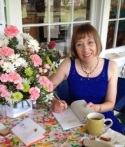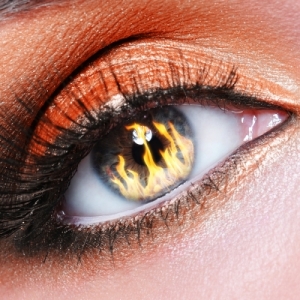Our most recent around-the-table discussion…

photo by Marcie Schwindt
Elizabeth McCallister
I think point of view is one of the most difficult things that new writers can face. It seems like a simple enough task – are you writing in the first, second or third person.
It gets more complicated when you actually get down to doing it well. In a sense, you must inhabit not only the personalities of your characters but also the world that you have created. A narrator who describes someone or something seems the easiest route until you realize that you have written something from one of the characters’ POV.
Trying to write from more than one character’s POV can be one of the most difficult tasks. How do you clearly separate the two characters’ POV so that each rings clearly?
Which is the final most difficult task – creating a character who seems fully human.
Jockie Loomer-Kruger
I like first person especially ideal for memoir which is my preferred genre. I [also] like it for the poetry I write.
Second person – sounds like a lecture. Thou shalt not…
Third person – can add a different type of detail from first. Good for fiction with various characters.
Omniscient – All knowing and able to get into everyone’s thoughts – best for descriptive scenes, for commentary on a character.
Barbara Lefcourt
From 1st person, there are unlimited POV – age, sex, ethnicity, personality, stage of life. What first person POV do you feel comfortable writing from.
What kind of minds are you able to get [into] and imagine being?
A major reason I love to read novels is to be able to get into the body and minds of persons totally different from myself.
My own writing of course grows from my personal points of view that have changed with age and with living in totally different environments.
Kathy Robertson
[POV] should convey the author’s opinion without being obvious.
Metaphors are effective tools in conveying imagery.
The true meaning should be elusive, not fully comprehended until the end.
One image building on the other until the complete meaning is fully realized.
Becky Alexander
I like to use the antiquated POV known as the “omniscient storyteller,” the guy who knows all, sees all and this includes knowing (and telling) what the characters even think, let alone what they do, see, etc. Think of the writers of the Bible.
I like this form as it is time tested, has survived for centuries and is the easiest form (for me) in which to write.
Case in point: I hate second person POV. [Sounds like a lecture].
Wendy Visser
Narrative style a) where narrator stands outside the story b) where narrator is part of the poem or story
Humour – writer writes from humourous perspective
• form of entertainment
o should not be forced but natural.
3rd person perspective – work written in 3rd person allows easy access to the reader. Can identify more with the situation – empathy.
First person -[works] depending on subject matter.
Marcie Schwindt
When I think about POV, first, second, third, whatever, just seems like an obvious choice based on the character’s voice and how intimate the reader needs to be with him/her to “get” who they are.
What’s more interesting, I think, is choosing which character’s viewpoint to write from. Personally, I choose the weakest character to showcase because they always seem to pull the most interesting text from me. Strong characters are boring. Weak people have to “fake it”, still have to learn how to cope. They have the greatest potential character arc because they have less to lose from taking risks.
Life is too short to waste writing on boring characters. The next time you need to decide whose story to tell, pick the less obvious choice: the character who might otherwise have been the sidekick. Give the non-speaking stock character a voice. Their story might surprise you.
Rob Quehl
1. In my opinion, if an author switches from one character’s point of view to another’s, then the style of writing should change to reflect this, so much so, that after a few chapters, the reader should be able to flip open the book at random and know whose point of view is being shown at that point.
2. I like the second-person point of view. If done well, it can pull the reader in and get them involved in the story, as it makes it sound like YOU, the reader, are the main character. A wonderful example of second-person for children is the “Choose Your Own Adventure” series of books. (See example below.) I have also read second-person for adults, and found it unique and engaging.
Your Very Own Robot (Choose Your Own Adventure #1) synopsis:
Your parents are scientists and inventors. One day, they throw some pieces of a robot into the trash. If you can figure out how to put the pieces together, you’ll have a robot of your very own! But do you know enough to control it? Are you ready for the adventures your very own robot will bring?
Lee Anne Johnston
I find first person narration comes naturally to me and seems to flow. I feel too artificial using third person, although this is just me. First person has obvious limitations, i.e. your narrator can not get into the minds and hearts of others, whereas an omniscient 3rd person narrator can easily float from and into many characters.













